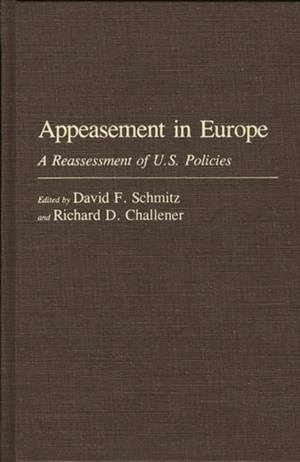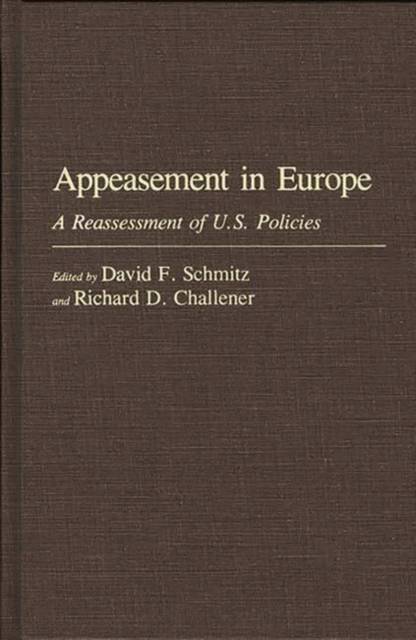
- Retrait gratuit dans votre magasin Club
- 7.000.000 titres dans notre catalogue
- Payer en toute sécurité
- Toujours un magasin près de chez vous
- Retrait gratuit dans votre magasin Club
- 7.000.0000 titres dans notre catalogue
- Payer en toute sécurité
- Toujours un magasin près de chez vous
Description
This collection of essays representing new thought on U.S. appeasement policy in 1930's Europe enlarges the traditional focus of research beyond United States-German relations by investigating American appeasement policy toward different nations. Zeroing in on the ideology of policymakers and the influences of various groups on the development of appeasement policy during the Roosevelt administration, the essays pose new questions about the role of antibolshevism, examine appeasement as one part of the quest for stability and peace in Europe, and provide different and illuminating insights not only on appeasement but also on the nature of U.S. foreign policy prior to World War II. The new scholarship presented here contributes to a more complete understanding of how the United States responded to the challenge of fascism in Europe during the 1930s.
Schmitz's introduction defines appeasement and discusses why and how the policy was formulated and in what respects it differed from the policy of Great Britain. The book outlines European political conditions of the period and how U.S. appeasement policy sought to prevent German and Italian aggression by either applying economic pressure or offering incentives for cooperation with Western democracies. In the first chapter by Wayne S. Cole, the three distinct schools of historical interpretation that have emerged to explain U.S. appeasement policy are reviewed and assessed. Where as the ideological dimensions of appeasement have been long overlooked by historians, Douglas Little's chapter on the British and American responses to the Spanish Civil War addresses the problem of how to contain the right without aiding Soviet foreign policy. Chapter three, by Jane Karoline Vieth, reexamines the crucial events leading up to the Munich agreement and its aftermath through a study of the thoughts and actions of Neville Chamberlain, Roosevelt, and Joseph P. Kennedy, and their critics. In chapter four, Schmitz investigates how prior American experience with Fascist Italy influenced U.S. policy toward Nazi Germany and motivated attempts to use Mussolini as a moderating force on Hitler. Chapter four also deals with material that is crucial for understanding American policy: the question of Roosevelt's response to British appeasement. The concluding essay by Richard A. Harrison examines possible U.S. and British alternatives to Chamberlain's appeasement policies that could have been employed. Appeasement in Europe will aid historians, students, and informed general readers in attaining a more complete understanding of American appeasement policy within the broader context of U.S. diplomacy during the 1930s.Spécifications
Parties prenantes
- Auteur(s) :
- Editeur:
Contenu
- Nombre de pages :
- 200
- Langue:
- Anglais
- Collection :
- Tome:
- n° 18
Caractéristiques
- EAN:
- 9780313259258
- Date de parution :
- 30-11-90
- Format:
- Livre relié
- Format numérique:
- Genaaid
- Dimensions :
- 142 mm x 211 mm
- Poids :
- 385 g

Les avis
Nous publions uniquement les avis qui respectent les conditions requises. Consultez nos conditions pour les avis.






